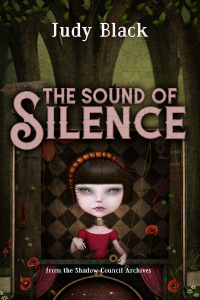Another week has come and gone, and it’s another busy week at Speculative Chic! We’ve got book reviews galore and tackling some of the latest genre treats on television. If you’re looking for fantasy, science fiction, and horror, we’ve got treats in store for you this week. In cased you missed it, here’s the Weekly Roundup!
 Monday
Monday
Our special guest for this week’s My Favorite Things is R.J. Joseph, one of our amazing contributors, and also an author with a lot to offer: we’re celebrating her latest works in a variety of anthologies, including Transitions and Awakenings: No Regrets. What are R.J.’s genre (and-not-so-genre) loves? How about crafting and adventures with glue guns, walks through stone-laden resting places, atmospheric radio oldies, and morbidly modern reliquaries? Look no further!
Tuesday
Calie continues her stalwart journey through the speculative genres in this edition of Changing the Map. Our stop for this leg is to discuss aaaall the awards (Nebula, Hugo, Locus, etc.) and honor Connie Willis, the most decorated, award-winning speculative fiction author. Buckle up for the ride along the Connie Willis Scenic Parkway!
 Wednesday
Wednesday
Kendra reviews the first book in The Tarot Sequence, The Last Sun by K.D. Edwards. In the land of New Atlantis, the last member of a murdered noble house goes missing and it’s up to Rune Saint John to wade through the intrigue to solve the mystery of the missing nobleman…and the legendary creature that wiped out the Rune’s Court. How does this series opener and debut fare? Consult the cards here.
Thursday
Our newest contributor Gemma Files reviews the newest iteration of the world-famous vampire classic, Dracula. This BBC production, brought to you by Steven Moffat and the creative team behind Sherlock, takes what you know about the story and its characters — Jonathon Harker, Mina Murray — and makes some interesting changes (including introducing Professor Van Helsing as Agatha Helsing of St. Mary’s Convent in Budapest), and adding a whopper of a surprise in the third episode. How does the series work as a whole, and how does it pull off reimagining Dracula? Sink your teeth into her review here.
 Friday
Friday
Michelle takes a look under the hood with an analysis of HBO’s Watchmen, in particular its use of the Strong Black Woman trope in the superhero character of Sister Night, played by Regina King. Providing context and clarity throughout, Michelle makes a fascinating breakdown, but as this is a critical deep-dive, be forewarned that spoilers abound! When it comes to tropes and both their harmfulness and helpfulness, does HBO’s treatment of Black characters make it worth watching the Watchmen? Unmask here.
Also for Friday, we’re debuting a brand-new column, Fiction Friday, where we invite authors to talk about their fiction and give you some intriguing excerpts of their work. Our inaugural post features Judy Black (aka our contributor Andrea Judy!) to celebrate her newest release, The Sound of Silence — the third book in her series, The Finnegan Family Cabinet of Abberations. If you’re looking for horror with a historical twist, look no further!
Book Club
Are you getting excited? We sure are! It’s the relaunch of the Speculative Chic Book Club, where we invite a contributor to choose and lead the discussion for the book of the month. Starting in January (you have a week to finish your reading, as we discuss this on the 31st, woo!) we’ve got Shara hosting Amal El-Mohtar and Max Gladstone‘s This is How You Lose the Time War. In February you can catch me hosting Jeremy C. Shipp‘s The Atrocities, and for March we have Kendra hosting Cate Glass‘s An Illusion of Thieves. Good luck on your reading and we hope to see you soon!

One of the things I’ve noticed over time is the change in how we interpret heroes and villains. In the past, they were clear-cut characters who very clearly drew their lines in the sand, and immediately we could identify who was good and who was bad. Of course these types still exist, but as heroes and villains have evolved, the differences between them narrow, and their actions have started to blur together. Sometimes heroes commit to doing ethically dubious things in order for their endgame — justice — to be accomplished. Sometimes villains are generous and show little actions that actually help others, even though their big plans are destructive. Whether they are superhuman or average vigilante, sympathic villain or a bad guy who seems right, it’s interesting to see the trend towards characters in the gray. Based on two reviews this week — for Watchmen and Dracula — it got me thinking about the blurring of moralities in heroes and villains. What do you think? You can comment below, and we’ll look forward to seeing you next week!


No Comments